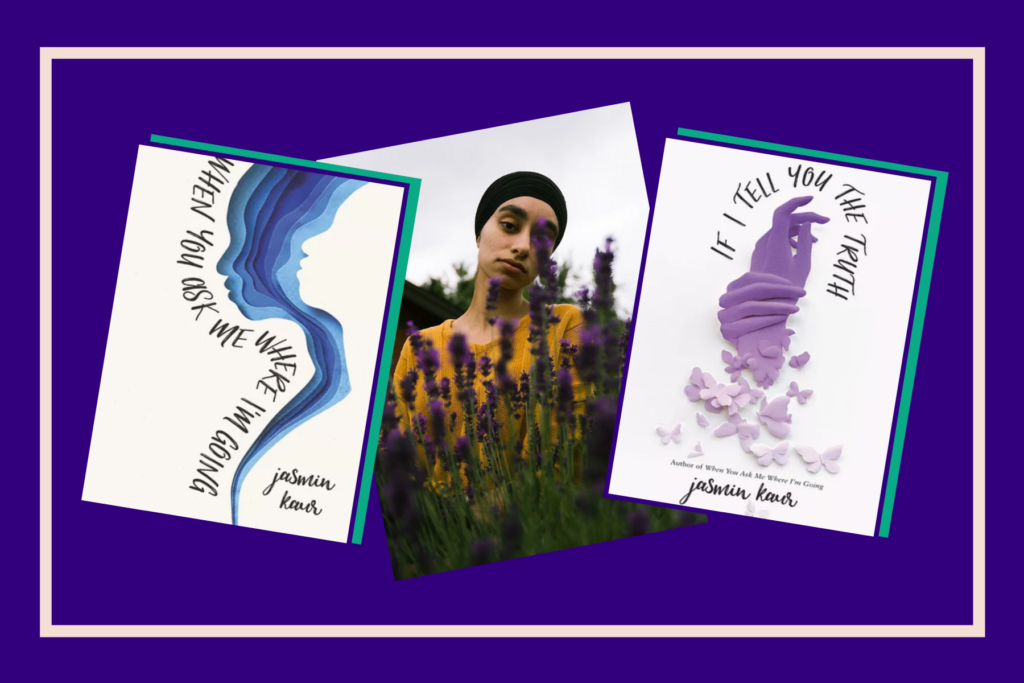
Robert Frost once stated, “I have never started a poem whose end I knew. Writing a poem is discovering.” As an avid reader of poetry, I came across many poets from whom I discovered something new about the world around me, where the intensity of their words give life to feelings and ideas. Poetry is the reflection of emotions, one that allows the reader to dive deeper into the thought process of questioning and discovering. However, this concept slightly changed when I came across one author, a young poet from Canada named Jasmin Kaur. Kaur’s poetic style creates a similar dynamic to many poets—namely, discovering oneself, yet her words strangely felt like home. The complete rawness of her words and poetic style opened a new world of poetry that I believe others should experience.
Kaur’s debut poetry book, “When You Ask Me Where I’m Going,” is the story of an undocumented woman named Kiran and her teenage daughter Sahaara. The novel addresses various themes such as race, discrimination, trauma, mental health, the journey of motherhood and much more. What surprised me, though, was the unique style of the poetry collection where each overarching section was divided into titles such as “skin,” “heart,” “nerve”—parts of the human body that relate to the theme of Identity. As readers, we regularly question the words, sentences, or chapters, but this time I found myself questioning a much deeper topic.
[Read Related: Poetry Book Review: ‘Crawling in My Skin,’ Edition 2, by ASHA sudra]
When I finished that novel, it was as if I didn’t only close the book on Kiran and Sahaara’s identity, but on my own identity as well. Each character’s struggle, development and intricate differences in poetic styles mirrored the growth and persistence of a woman of color—one that is not often talked about within the brown community. The question that persistently came to me when I closed the pages to this book was who are you?
View this post on Instagram
The answer was found when I opened Kaur’s newest book, “If I Tell You the Truth.” Kaur takes on a much distinctive writing style with poems and prose when writing this novel. The illustrations throughout the book reflect the current action or emotion felt by the character. Though the illustrations seen throughout the novel are beautifully drawn, I was in awe even before I opened the book. The poem at the back of the book jacket reminded me why I was excited to embark on another one of Kaur’s books:
this isn’t a poem
instead it’s an obituary
for the girl I used to be
the girl who belonged to
everyone but herself
the girl who swallowed
her heart and bit her tongue
the girl who would have
never dared to run.
The novel is a continuation of Kiran and Sahaara’s story, but this time around, it was laid out from the beginning of Kiran’s perspective. The story begins with the truth of Kiran’s pregnancy being a result of sexual assault to which Kaur provides a trigger warning. With this terrifying realization, Kiran leaves her home in India, and as planned, attends university in Canada. However, the birth of Sahaara, cutting ties from her family and financial struggles around her make it difficult for her to attend university while supporting Sahaara. As a result, Kiran’s visa expires as she overstays her visit in hopes of protecting and raising Sahaara, and at this point, Kiran fears being deported at any time due to her new undocumented status.
[Read Related: Book Review: Noor Sclafani Takes on the Poetry World With ‘Purple Sunset’]
The story continues as Sahaara grows older, with a story of her own, learning about who she is and later the truth of her conception. With this new information, Sahaara raises her voice to help her mother through the struggles and violations she faced. The story of a mother and daughter reveals their similarities in growth, but their differences are seen from a generational scope. The theme of identity is apparent yet again, this time revealing itself as the truth about Sahaara’s conception as a determiner of who we are.
“If I Tell You the Truth” is one of those books I will always find myself going back to when I am feeling down. I highly recommend this beautiful piece of work to anyone looking to add to their poetry collections. Kaur’s beautiful poetic style not only allowed me to discover more about the world around me but also helped me see who I am in the world and the person I choose to define myself as.




